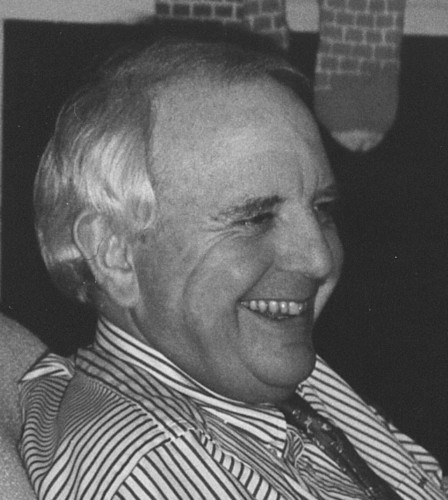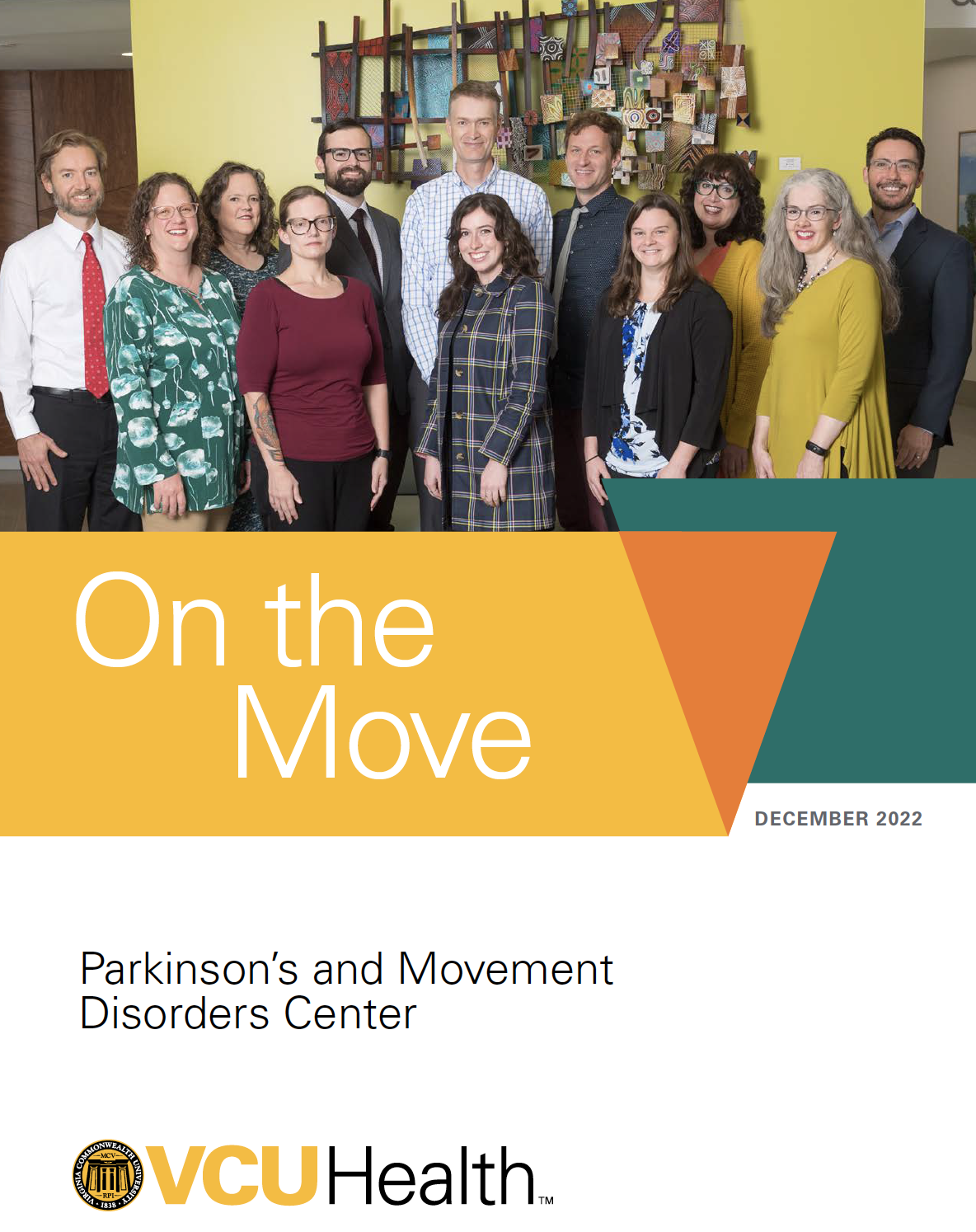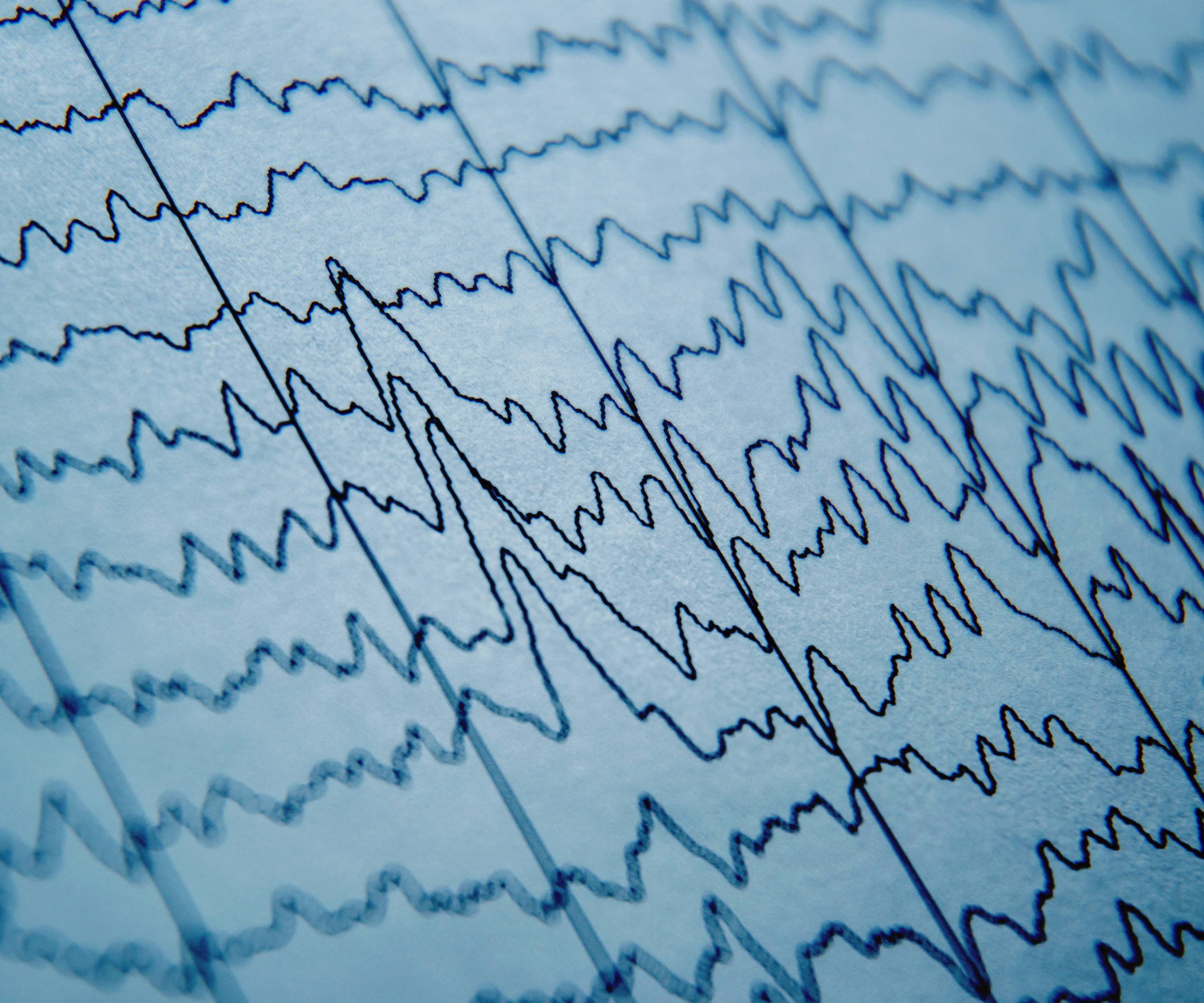Remembering David Reynolds
We were deeply saddened to hear about the passing of David Caldwell Reynolds, a driven business leader in Richmond who played a lead role in the formation of the VCU Parkinson’s and Movement Disorders Center.
PD patient ‘making a difference in the world via VCU’
Gabie Frazier hasn’t let Parkinson’s disease slow her down. If anything, it’s sped her up. Before she retired in 2017, her colleagues at the Virginia Department of Education would periodically notice her left hand shaking. They encouraged her to seek medical attention; finally,she scheduled an appointment. After months of testing and observations, she was diagnosed […]
Our Year-End 2022 Newsletter
The VCU Parkinson’s and Movement Disorders Center has had many successes over the past year, and we have continued to gain recognition far and wide for our cutting-edge work. We’ve compiled a few stories into a year-end newsletter, On the Move. In it, you’ll meet a few new faces, see what some older faces are […]
Richmond Brain Health Initiative expanding partnerships, reaching out to minorities
A team at VCU is working to help address this tremendous need through the Richmond Brain Health Initiative, which offers cognitive screenings, connects patients with local brain health providers and services, dementia lifestyle coaching, and caregiver support services.
Neurologist Dr. Leslie Cloud outlines impact of PMDC “Center of Excellence” designation
Dr. Leslie Cloud says being designated a Parkinson’s disease “Center for Excellence” will bring numerous benefits to the VCU Parkinson’s and Movement Disorders Center for years to come. PMDC officials learned in July they had earned the Parkinson Foundation’s prestigious five-year designation. It’s given to centers that the foundation recognizes for providing the best clinical care and […]
Could VCU researchers help detect Lewy body dementia faster?
Creating a biomarker to identify characteristics of Lewy body dementia (LBD) could get patients the treatment they need faster — and improve their quality of life for longer.





